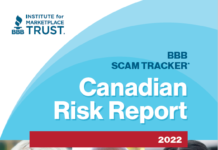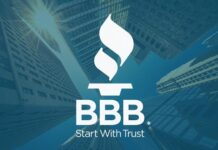Victims over the age of 65 lost $3.33 million of the $4.1 million reported since 2018
SWEEPSTAKES, lottery and prize scams have not lessened their financial and emotional harm, despite concerted law enforcement efforts, says Better Business Bureau (BBB) whose data shows that consumers over the age of 65 account for 80 per cent of money lost in sweepstakes, lottery, and prize schemes. BBB cautions this group to be particularly vigilant about recognizing and avoiding tactics used by scammers to prey on people, especially during this COVID-19 pandemic.
In June 2018, BBB issued an in-depth investigative study on sweepstakes and lottery scams. Since that time, BBB Scam Tracker reports have declined, however, adults aged 65 and older remain the largest group victimized by these scams. Of the 4,417 sweepstakes and lottery scams reported to BBB Scam Tracker since 2018, nearly half came from victims over the age of 65. This age group lost $3.33 million of the $4.1 million reported.
Many sweepstakes and lottery scams continue to originate from Jamaica. Scammers may reach out by phone, email, Canada Post or even social media. They may also contact the public claiming to be representatives of fictitious but legitimate-sounding organizations, such as the “International Gaming Commission” and the “Canadian Gaming and Lottery Commission.” Neither organization exists.
Scammers have updated their sales pitches to potential victims to include COVID-19 twists. According to Scam Tracker reports, scammers are discussing supposed COVID-19 safety precautions for prize delivery, and attributing delays in awarding prizes to the pandemic. One impostor scam, fraudulently using the Publisher Clearing House name in connection with a bogus COVID-19 Census Grant, allows targeted victims to choose their winnings by the amount of fees they are willing to pay. Using social media, scammers publish a list of supposed winners and invite people whose names are not on the list to provide personal information and choose their award level.
Many victims are being instructed to mail cash to scammers. Besides offering fake cash prizes, scammers may lure victims by also claiming victims will receive luxury cars, laptops or other high-end merchandise. People who have become victims of sweepstakes scams are likely to be contacted again by scammers. Many lottery scam victims keep sending money for weeks or months, thinking that each step is the last one before they get their winnings.
A Kelowna resident made this report to BBB:
“A man named John King called my elderly father saying that he won $5 million and a car but UPS would need $500 to deliver. I called back the number. There was no answering machine but it was a cell phone that went straight to voice mail. I left a message saying not to contact us again. My dad said John King called back while I was away and told him that he understands that his daughter doesn’t want him taking these calls and that he should not let me stop him from claiming what is his because I don’t make his decisions. My father says he doesn’t sound like a scammer because he was respectful and listened to everything he said, plus assured him the money would go straight to UPS. So he sent him the $500 plus shared lots of personal information with him. He still refuses to believe it’s a scam and is still waiting for his prize”.
“The law requires you to purchase a ticket to play the lottery, but a legitimate lottery or sweepstakes will never ask its winners to wire money or buy gift cards to claim the prize,” says Karla Laird, Manager for Community and Public Relations at BBB serving Mainland BC. “It is heartbreaking to see that these fraudsters are continuously preying on older people who are dreaming of a big win or a financial windfall in their golden years.”
Law enforcement officials in North America and Jamaica have prosecuted several cases in the last two years. These prosecutions have included not only scammers, but also victims called ‘money mules’, who agreed to participate in additional scam activity. While these money mules typically are not prosecuted if they were unaware of their own participation in scams, known accomplices have been the target of government action.
Tips for detecting and avoiding sweepstakes, lottery or prize scams:
* You’ve got to play to win. A notification that you have won a prize in a contest you do not remember entering should be a red flag. If you do regularly enter contests or sweepstakes, make sure to keep track of your entries so you can easily confirm potential winnings if someone contacts you.
* True lotteries or sweepstakes don’t ask for money. If they want money for taxes, themselves, or a third party, it most likely is a scam.
* Call the lottery or sweepstakes company directly to see if you won. According to Publishers Clearing House (PCH), it does conduct sweepstakes but does not call or email people in advance to tell them they’ve won a major prize, nor asks for money. Report PCH imposters to their hotline at 800-392-4190.
* Check to see if you won a lottery. Call the North American Association of State and Provincial Lotteries at 440-361-7962 or the British Columbia Lottery Corporation (BCLC).
* Do an internet search of the company, name, or phone number of the person who contacted you.
* Law enforcement officials do not call and award prizes. If you think you have been contacted by law enforcement, verify the identity of the caller but do not send money.
* Talk to a trusted family member or your financial institution. They may be able to help you determine if you are being targeted for a scam.
Where to report a sweepstakes, lottery or prize scam:
* Better Business Bureau: BBB Scam Tracker at bbb.org/scamtracker
* Canadian Antifraud Centre: 1-888-495-7597
* BCLC Customer Support Centre: 1-866-815-0222












